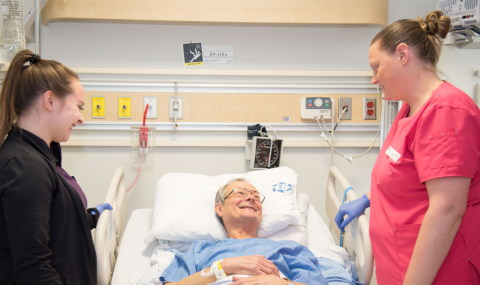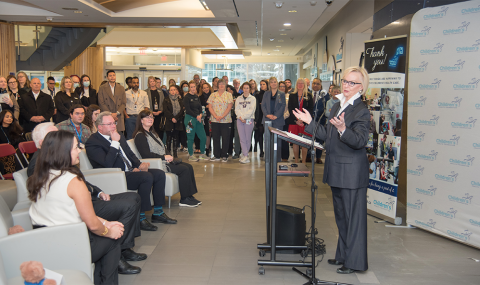July 31, 2015
London cancer researchers from Lawson Health Research Institute and Western University have received a $1.8-million boost from the Canadian Institutes of Health Research (CIHR) to support their medical research efforts. This recent success is more proof of London’s strength in providing cancer care and conducting innovative cancer research.
Dr. Samuel Asfaha has received $712,790 to study the effects of colitis on the development of colon cancer. Patients with Inflammatory Bowel Diseases (IBD), including Crohn’s and Ulcerative colitis, are at increased risk of colon cancer; however, until recently the mechanism and cell of origin for cancer has remained largely unknown. Dr. Asfaha has identified a unique cell type that gives rise to colon cancer in the setting of colitis. His team now aims to understand how colitis contributes to transformation of this cell to colorectal cancer. This work will help identify new targets for novel colon cancer therapies.
Dr. Joseph Mymryk and co-applicant Dr. Anthony Nichols have received $573,250 to research the mechanisms involved in human papillomavirus (HPV) related cancers. HPV infection is thought to account for about 5 percent of human cancers. This includes nearly all cervical cancers and an increasingly large number of cancers of the oral cavity. Infection with HPV forces cells to grow abnormally, causing warts. This abnormal cell proliferation may initiate the progression to cancer. According to Dr. Mymryk two key viral proteins are required for this to occur. His research will focus on learning more about the mechanism by which this occurs, with the aim of using this information to improve treatment of these virally induced cancers.
Dr. Anthony Nichols has received $515,090 for his research on head and neck cancer. The disease and its treatment can have a profound negative impact on patient quality of life in terms of speech, the ability to eat, facial disfigurement and pain. Only one half of patients with advanced disease survive making the need to develop more effective and less toxic therapies important. PI3K inhibitors are a class of drug that have shown promise in treating a variety of cancers. Dr. Nichols research will focus on identifying the genetic changes involved in cancer cells to determine which tumours are susceptible to these drugs and how drug resistance can be prevented.
Dr. Anthony Nichols



